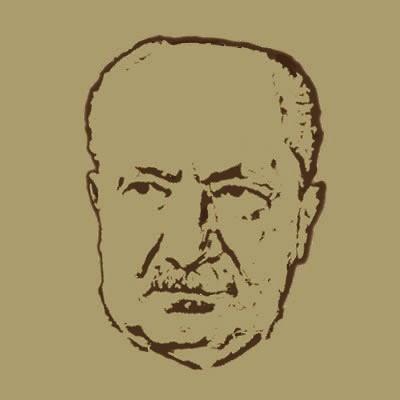The phenomenological sense of poetic language in the second Heidegger
Main Article Content
Abstract
This paper seeks to show that the odd poetic style used by Heidegger within his ontohistorical works is not arbitrary, nor responds to a mere desire of eccentricity. Unlike this, the philosopher found poetic language as a way to be more faithful to his conception of phenomenology. The proposed thesis is that the phenomenology practiced in Sein und Zeit failed to account for the condition of thrown (Geworfenheit) of Dasein and for the essence of truth, understood as rejection. To do so, it would be necessary a phenomenology that is equally thrown, happened, which finds its guiding model in poetry.
Downloads
Article Details

This work is licensed under a Creative Commons Attribution-NonCommercial-NoDerivatives 4.0 International License.
Authors retain ownership of copyright and reproduction rights.
Authors may make other independent and additional contractual arrangements for non-exclusive distribution of the version of the article published in this journal (e.g., inclusion in an institutional repository or publication in a book) as long as they clearly indicate that the work was first published in this journal.
Authors are allowed and encouraged to publish their work on the Internet (e.g. on institutional or personal websites) after the review and publication process, as it may lead to productive exchanges and to a wider and faster dissemination of the published work.
References
Basso, l. La unidad de la diferencia. Acerca del acontecer en la obra de Heidegger. Buenos Aires. Biblos, 2017.
Cosmus, O. Anonyme Phänomenologie. Die Einheit von Heideggers Denkweg. Würzburg, Königshausen & Neuman, 2001.
Gadamer, H.-G. Los caminos de Heidegger. Barcelona, Herder, 2002.
Gethmann, C. Verstehen und Auslegung. Das Methodenproblem in der Philosophie Martin Heideggers. Bonn, Bouvier, 1974.
Heidegger, M. GA 66. Besinnung. Fráncfort del Meno, Vittorio Klostermann, 1997. Heidegger, M. Los problemas fundamentales de la fenomenología. Madrid, Trotta, 2000. Heidegger, M. Meditación. Buenos Aires, Biblos, 2006.
Heidegger, M. Sobre el comienzo. Buenos Aires, Biblos, 2007. Heidegger, M. Hitos. Madrid, Alianza, 2007.
Heidegger, M. Preguntas fundamentales de la filosofía. “Problemas” selectos de “lógica”. Granada, Comares, 2008.
Heidegger, M.: ¿Qué significa pensar? Madrid, Trotta, 2010. Heidegger, M.: Tiempo y ser. Madrid, Tecnos, 2011. Heidegger, M.: Ser y tiempo. Madrid, Trotta, 2012.
Heidegger, M.: Cuadernos negros (1931-1938). Madrid, Trotta, 2015 Heidegger, M.: Cuadernos negros (1938-1939). Madrid, Trotta, 2017.
Heidegger, M. GA 82. Zu eigenen Veröffentlichungen. Fráncfort del Meno, Vittorio Klostermann, 2018.
Herrmann, F.-W. von. Weg und Methode. Zur hermeneutischen Phänomenologie des seinsgeschichtlichen Denkens. Fráncfort del Meno, Vittorio Klostermann, 1990.
Herrmann, F.-W. von. La segunda mitad de Ser y tiempo. Sobre Los Problemas fundamentales de la fenomenología de Heidegger. Madrid, Trotta, 1997.
Husserl, E. Investigaciones lógicas I. Madrid, Alianza, 1999.
Husserl, E. Ideas relativas a una fenomenología pura y una filosofía fenomenológica. Libro primero: Introducción general a la fenomenología pura (Ideas I). México D.F., UNAM/FCE, 2013.
Pöggeler, O. El camino del pensar de Martin Heidegger. Madrid, Alianza, 1993.
Polt, R.: “The Black Notebooks as Thought Journals”, en denker, A. y zaBorowSki, H. (eds.), Heidegger-Jahrbuch 11. Zur Hermeneutik der “Schwarzen hefte”. Freiburg/Múnich, Karl Alber, 2017.
Safranski, R. Un maestro de Alemania. Martin Heidegger y su tiempo. México D.F., Tusquets, 2010.
Thomson, I.: “Heidegger’s Nazism in the Light of his early Black Notebooks: A view from America”, en Denker, A. y Zaborowski, H. (eds.), Heidegger-Jahrbuch 11. Zur Hermeneutik der “Schwarzen hefte”. Freiburg/Münich: Karl Alber, 2017.
Vallega-Neu, D. “Die Schwarzen Hefte und Heideggers seynsgeschichtliche Abhandlungen (1936-1942)“, en Denker, A. y Zaborowski, H. (eds.). Heidegger-Jahrbuch 11. Zur Hermeneutik der “Schwarzen hefte”. Freiburg/Múnich, Karl Alber, 2017.
Vigo, A. Arqueología y aleteiología y otros estudios heideggerianos. Buenos Aires, Biblos, 2008.
Volpi, F. “Goodbye, Heidegger! Mi Introducción Censurada a los Beiträge zur Philosophie”, en Actas del I Congreso Internacional de Fenomenología y Hermenéutica. Santiago de Chile, Universidad Andrés Bello, 2008.
Volpi, F. Martin Heidegger. Aportes a la filosofía. Madrid, Maia, 2010.
Xolocotzi, A. Fenomenología de la vida fáctica. Heidegger y su camino a Ser y tiempo. México D.F., UIA/Plaza y Valdés, 2004.
Xolocotzi, A. Fundamento y abismo. Aproximaciones al Heidegger tardío. México D.F., BUAP/Porrúa, 2011.
Xolocotzi, A. y Zirión, A. ¡A las cosas mismas! Dos ideas sobre fenomenología. Ciudad de México, Porrúa/Universidad Michoacana de San Nicolás Hidalgo/BUAP, 2018.

